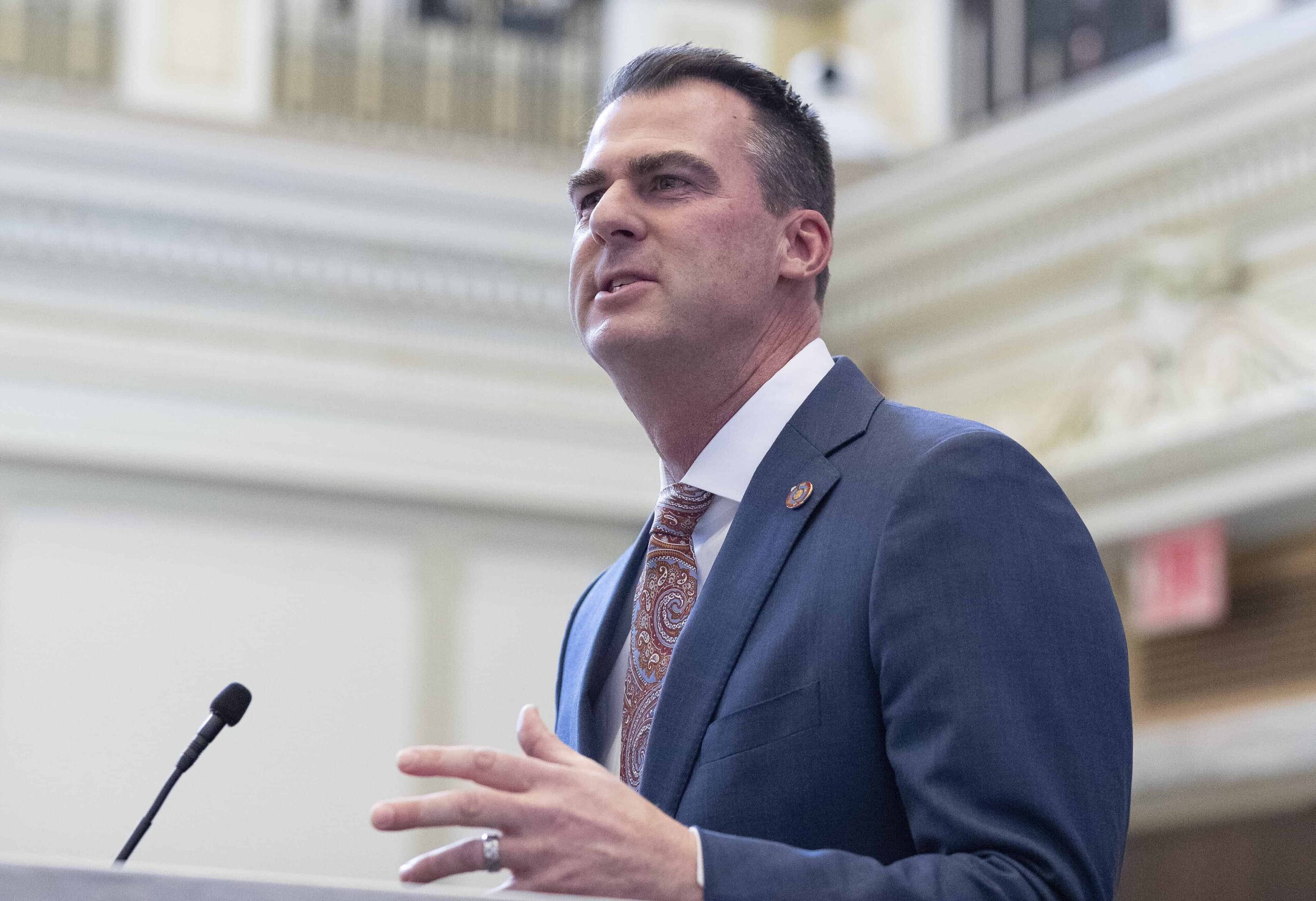Oklahoma Gov. Kevin Stitt signed a law this week making the Sooner State the first in U.S. history to outlaw non-binary birth certificates.
Stitt, a Republican, approved Senate Bill 1100 in a April 26 ceremony after calling on the state legislature to introduce legislation preventing non-binary people from accessing accurate birth records. In November, he issued an executive order banning all gender marker corrections on birth certificates after the Oklahoma State Department of Health settled a lawsuit brought by non-binary Oregon resident Kit Lorelied by issuing them documents with an “X” gender marker.
“People are created by God to be male or female,” Stitt said upon issuing the executive order. “Period.”
SB 1100 builds on Stitt’s mandate by stating that sex designations on birth certificates may only be “either male or female, and shall not be non-binary or any symbol representing a non-binary designation including but not limited to the letter ‘X,’” according to its bill text. The legislation passed the Oklahoma Senate in February before clearing the state House earlier this month.
Oklahoma state Rep. Sheila Dills, the bill’s sponsor, said that SB 1100 is intended to ensure “clarity and truth on official state documents.”
“People are free to believe whatever they want about their identity, but science has determined people are either biologically male or female at birth,” the Republican lawmaker stated in comments reported by NBC News. “Information should be based on established medical fact and not an ever-changing social dialogue.”
“Prohibiting non-binary identity markers is just another attempt to erase the identity of transgender and non-binary people.”
LGBTQ2S+ advocacy groups condemned the new law, which goes into effect immediately. Cathryn Oakley, state legislative director for the Human Rights Campaign (HRC), said that Oklahoma lawmakers “have been relentless in their attack on LGBTQ2S+ rights and particularly for transgender people,” noting that Stitt also signed an anti-trans sports ban into law earlier this month.
“Prohibiting non-binary identity markers is just another attempt to erase the identity of transgender and non-binary people,” she said in a statement after the bill passed the state House. “SB 1100 is another display of hyperpartisan and radical policy making by legislators hoping to legislate discrimination to win over their radical base.”
SB 1100 is likely to be pulled into a lawsuit filed last year by Lambda Legal against Stitt’s executive order. At the time, the national advocacy organization said the order “deprives transgender people born in Oklahoma of equal treatment under the law.”
“Other people have access to birth certificates that match who they are, but the government has singled out transgender people to take away their ability to access birth certificates that match who they are,” said senior attorney Shelly Skeen in a statement cited by the local newspaper Tulsa World.
As the litigation remains ongoing, Oklahoma’s policies could create major headaches for residents of the state who identify as neither male nor female. The U.S. Department of State announced in March that non-binary people would officially be able to apply for gender-neutral passports after Dana Zzyym, who is intersex, became the first American to receive an “X” marker on the federal documents last year. The option is available to the U.S. public as of April 11.
Having a passport and a birth certificate that do not match may result in increased scrutiny toward non-binary Oklahomans. More than a third (32 percent) of trans people who were forced to present identification that did not match their sense of self experienced harassment, discrimination or physical violence as a result, according a 2015 survey from the National Center for Trans Equality (NCTE).
Currently, only 16 U.S. states allow non-binary people to apply for corrected documents that correspond with their lived gender, according to the non-profit think tank Movement Advancement Project (MAP). These include California, Colorado, Maine, Michigan, Nevada, New Jersey, Oregon, Rhode Island and Washington.
While no U.S. state has ever explicitly banned non-binary people from amending their birth certificates, two other states do not allow trans people to correct those documents at all: Tennessee and West Virginia. Both states are facing lawsuits over the policies.
In a year marked by a historic number of bills aimed at curtailing rights and protections for trans Americans, Oklahoma’s law was not the only attack on the U.S. trans community this week. On Tuesday, the Kansas Senate voted to override Gov. Laura Kelly’s veto of a bill limiting sports participation for trans female student athletes at both the K-12 and collegiate levels. The state House is expected to weigh in on the veto override within the coming days.
Kelly, a Democrat, referred to Senate Bill 160 as “harmful to students and their families, and it’s bad for business” while announcing her veto earlier this month. She is one of several governors to block anti-trans sports bans this year following governors in Indiana, Kentucky and Utah, although legislatures in the latter two states elected to overturn their gubernatorial vetoes.
This is the second time Kelly has vetoed an anti-trans sports bill after she refused to sign similar legislation last year. Her 2021 veto was sustained.


 Why you can trust Xtra
Why you can trust Xtra


